
Reem Shehab Sweet Success: Crafting Palestinian-Flavored Chocolates From Ramallah To The World
Her origins trace back to the city of Jaffa, from which her family was displaced during the 1948 exodus. After living in exile for years, she returned to Palestine and settled in Ramallah. She is Reem Shehab, the pioneer behind Palestinian-flavored chocolates, incorporating tastes like mountain sage, thyme, and other Palestinian herbs. Her journey began as a hobbyist.
She calls herself a creator of chocolates with natural aromatic herbs and pure Eastern flavors, driven by her desire to explore Eastern flavors found in aromatic herbs, something somewhat unusual as chocolates typically don't contain these flavors. However, she was keen on showcasing them in chocolate.
She adds that anyone who tastes these flavors feels they are distinctly Palestinian, including mountain sage, artemisia, za'atar, basil, and mint, giving a sense of a national taste. There are also other flavors blended in unique ways to extract new tastes.
Education-wise, Reem Shehab studied Western pastry and Italian pastry, both in Palestine and through online courses, and furthered her studies in Turkey. While she learned all the Western flavors, she felt it wasn't quite suitable for her, realizing she was learning something foreign to her culture. Therefore, she aimed to establish Eastern flavors in any way possible. Her focus on her graduation project was initially on Eastern flavors in Western pastries, creating a clear chocolate with the flavor of mountain sage, which was distinctive in every detail.
Shehab then attempted to incorporate the essence of Eastern flavor into pastries, despite initial difficulties. She started experimenting from her home, aiming to create something beautiful with an Eastern flavor by Palestinian hands.
Shehab talks about her period of exile in Nicaragua for three years and how she enthusiastically received anything from Palestine, such as sage, thyme, and sesame. These were precious and different gifts, so she wanted to convey the feeling she experienced when receiving these gifts from Palestine to the expatriates who have been displaced from their homeland for decades and haven't returned. She felt a desire to convey Palestinian Eastern flavor through these chocolates to bridge the distance to Palestine through these flavors.
She says that the idea of making chocolates with natural aromatic plants originated from her, and she was the first to be surprised by the idea's success. The taste and flavor were distinctive and pleasant.
She describes her feeling each time she created a new flavor as beautiful and strange, as mountain sage is a plant we're accustomed to having with a cup of tea, but to have it in a piece of chocolate is strange and unusual. She started inventing flavors and invited her husband and children to taste these new flavors, which were well received and admired by everyone, paving the way for her to experiment with other flavors, like introducing green thyme into chocolate.
Shehab confirms that she was happy with her work, despite her fears of the new flavors not being accepted, especially mountain sage, which we're not accustomed to in chocolate.
As for the initial obstacles, Shehab believes that the biggest obstacle was receiving feedback from those who tasted the chocolate as a first experience. She says she was filled with anxiety awaiting the result, anticipating the customers' reactions. She was surprised that the flavors were fantastic and were accepted with love and admiration. Her feeling was like that of a Palestinian lady inventing something new, akin to a feeling of victory. She achieved success in terms of quantities, taste, and flavor. "Mountain sage brought me back to the taste of my homeland, it is something that belongs to my country."
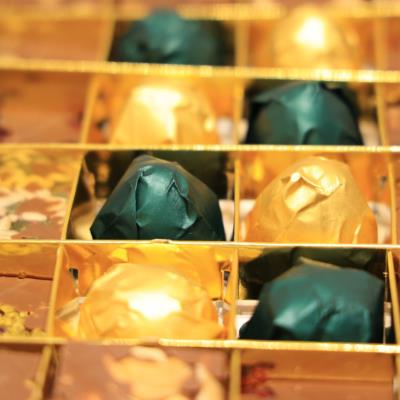
Development and Distribution Stage:
Shehab mentioned that the idea of distribution was not initially considered. She started producing in her home for her family, making flavors for specific individuals and regular parcels at the beginning. There was no brand, and it wasn't documented. Later, when there was demand for the product with different flavors, she introduced baklava, knafeh, fig, apricot, dates, and natural honey. All the ingredients were natural; nothing artificial was used. She personally combines the flavors, and her studies helped her to discover and understand how to blend and mix flavors.
After that, Shehab indicated that she reached the stage of producing a range of chocolates with their special flavors. She opened a factory and registered the product under her name, and she now has workers.
Overall, distribution is primarily online, according to Shahab, and she has a point of sale in Ramallah. Currently, she seeks to expand points of sale in other cities such as Bethlehem, Hebron, and other governorates. Her products have crossed the borders of Palestine to the following countries: Jordan, Lebanon, Tunisia, Morocco, Dubai, Panama, and Nicaragua.
Technical Obstacles:
She confirms that the obstacles were significant, especially at the beginning of her work during the COVID-19 period in 2021. Initially, work began at home in a small space and not in the factory atmosphere. Distribution was not easy in the beginning, and production started with simple things relying on the microwave and other simple devices at home due to the lack of specialized machines at that time. Later on, the work evolved, and she established her own factory.
Working Method:
Shehab explains the method of making chocolate with the flavor of mountain sage and honey. She says that initially, they prepare the chocolate mixture, which they blend in a special machine in the factory and pour it into a mold. Then, they wait for the chocolate to cool to a certain temperature. After that, they add the filling, which is the flavor of mountain sage and honey, inside the chocolate in the form of a bonbon. They add more chocolate to cover it, then put it in the refrigerator again for a few minutes. Afterward, they remove it, pack it in special boxes, wrap it, and deliver it.
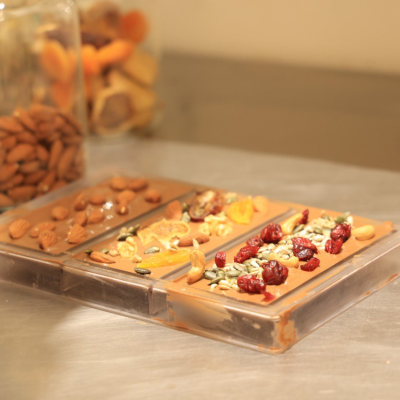
Shehab indicates that most customers order Palestinian natural flavors, considering it as a gift for their acquaintances and friends, something dear to them. Demand increases during holidays such as Eid al-Fitr, Eid al-Adha, Christian holidays, and occasions like Women's Day and Labor Day, which leads to pressure on production. On other days, orders are limited to special requests and gifts, which are recommended through her product page . Any order is prepared directly, and if it's for delivery outside Palestine, it's packaged differently, considering temperature levels and transportation means to ensure it arrives intact.
Her Message:
Shehab believes that every woman should not judge herself by her age and that she has the ability to give. Despite all the circumstances and situations surrounding Palestinian women, they have a beautiful energy and creativity, always wanting to produce and innovate. "We have something beautiful that we want to share."
Regarding her family's opinion on Reem Shehab production of chocolates with Palestinian flavors, her daughter Rasha Shahab says: "We loved Mama's idea, especially the new and delicious taste and flavor. I love the chocolate with the flavor of the nuts. We always support Mama and are proud of her in every step she takes and the progress and excellence she achieves."
This story was produced as part of the "Qarib" program implemented by the French Media Development Agency (CFI) in partnership and funding from the French Agency for International Cooperation (AFD).
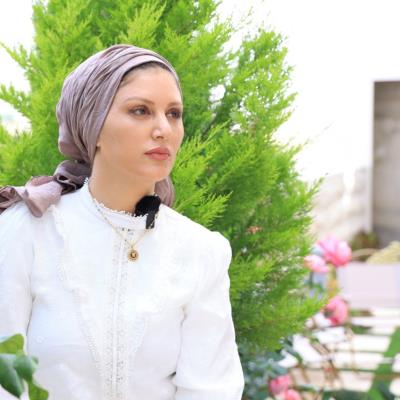

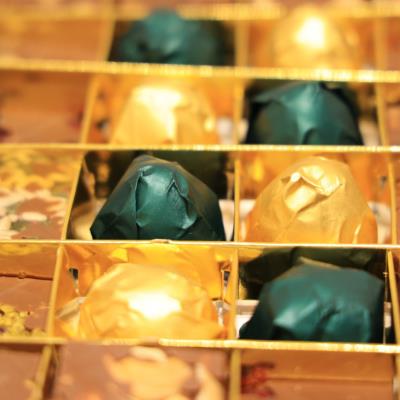
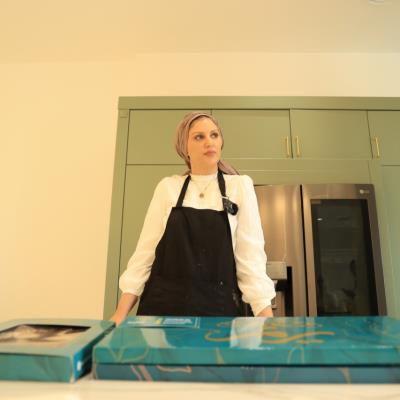
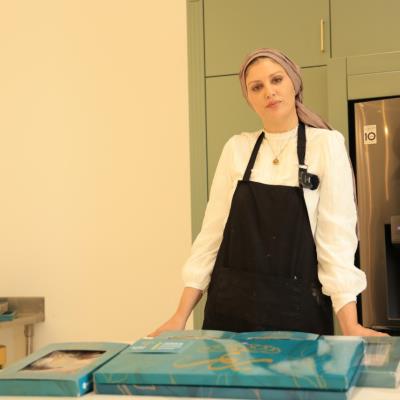
Legal Disclaimer:
MENAFN provides the
information “as is” without warranty of any kind. We do not accept
any responsibility or liability for the accuracy, content, images,
videos, licenses, completeness, legality, or reliability of the information
contained in this article. If you have any complaints or copyright
issues related to this article, kindly contact the provider above.

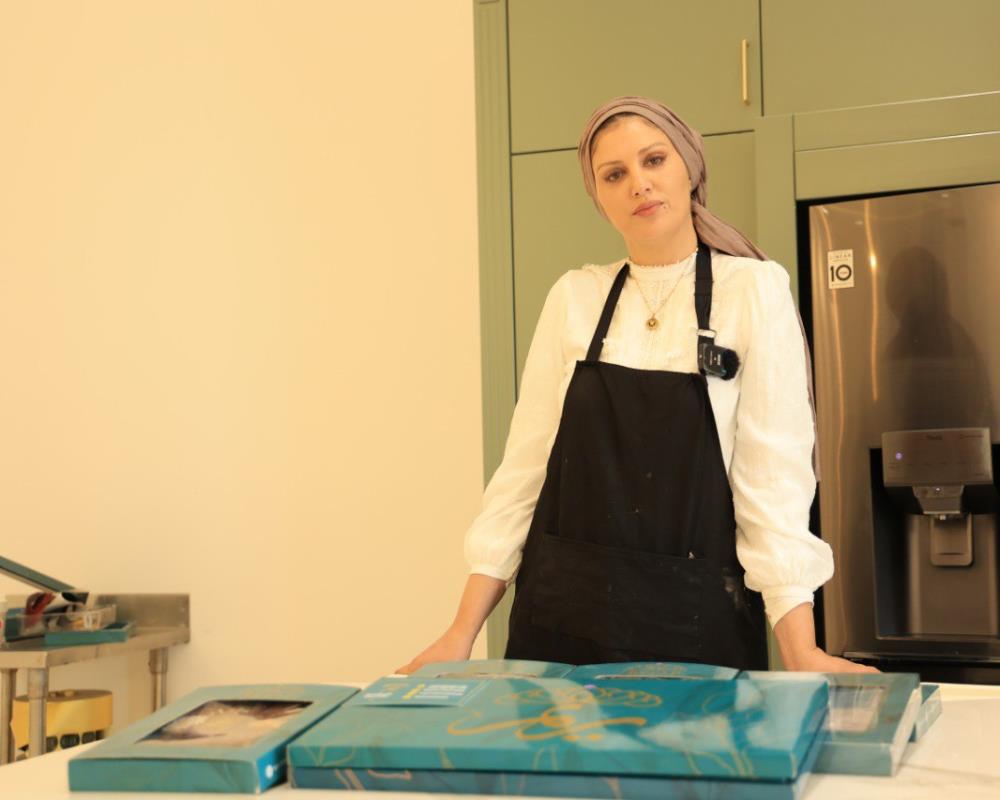
















Comments
No comment